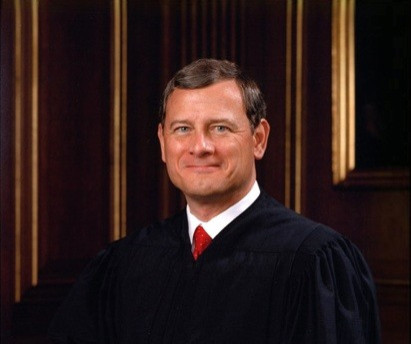Why John Roberts Flip-Flopped On 'Obamacare'

When CBS News broke the story that U.S. Chief Justice John Roberts -- the pivotal vote in the Supreme Court's 5-4 landmark ruling on the Affordable Care Act last Thursday -- had first decided to vote with his fellow conservatives on so-called Obamacare and then changed his mind, it led to huge questions, not only about him but also about his motivations.
Roberts, nominated as the 17th U.S. chief justice by President George W. Bush in 2005, has long been considered a lock to vote the Republican Party line on big issues -- and there have been few bigger issues than Obamacare during his seven-year tenure -- so the speculation about his motives was fierce and immediate.
Evidently, Roberts was swayed at one point or another -- believed to have been about a month or so ago -- by at least some of the arguments made by the liberal justices, despite heavy lobbying by the conservative justices, especially Justice Anthony Kennedy. Ironically, Kennedy was considered by many people to be the one wild card in the process leading to the monumental decision. In fact, Kennedy is about the last justice anyone would have expected to be trying to rally a wayward conservative on this issue.
According to CBS News, however, Kennedy desperately attempted to woo Roberts for about a month: 'He was relentless,' one source said of Kennedy's efforts. 'He was very engaged in this.'
Following the failure of these efforts, CBS reported: The conservatives refused to join any aspect of his opinion, including sections with which they agreed, such as his analysis imposing limits on Congress' power under the Commerce Clause, the sources said. Instead, the four joined forces and crafted a highly unusual, unsigned joint dissent. They deliberately ignored Roberts' decision...as if they were no longer even willing to engage with him in debate.
The lifelong appointments given to Supreme Court justices are in place to prevent any kind of political gamesmanship or maneuvering like that many believe to have seen in the handling of the health-care bill. The Supreme Court is a famously tight ship when it comes to leaks, but there is speculation the dissension among the conservatives in this case made a leak like the one underlying the CBS report inevitable.
In Roberts' apparent switch of sides, he may have been susceptible to all the media coverage of the case, according to the Huffington Post. The chief justice is certainly aware of the court's -- the Roberts court's -- comparatively conservative reputation, and he may have carried out a preemptive strike on the picture history would eventually paint of him and his court.
Roberts had the power to decide which justice would write the majority opinion, and, quite dramatically, he reserved that responsibility for himself.
Some of the conservatives, such as Justice Clarence Thomas, deliberately avoid news articles on the court when issues are pending (and avoid some publications altogether, such as The New York Times). They've explained that they don't want to be influenced by outside opinion or feel pressure from outlets that are perceived as liberal, wrote The Volokh Conspiracy.
But Roberts pays attention to media coverage, CBS reported. As chief justice, he is keenly aware of his leadership role on the court, and he also is sensitive to how the court is perceived by the public. ... Some even suggested that if Roberts struck down the mandate, it would prove he had been deceitful during his confirmation hearings, when he explained a philosophy of judicial restraint. It was around this time that it also became clear to the conservative justices that Roberts was, as one put it, 'wobbly,' the sources said.
Roberts has long been considered one of the staunchest conservatives on the bench. Even if there was some evidence to refute that before, he has certainly has shaken the Republican moniker in favor of the truest form of the word conservative.
© Copyright IBTimes 2024. All rights reserved.





















